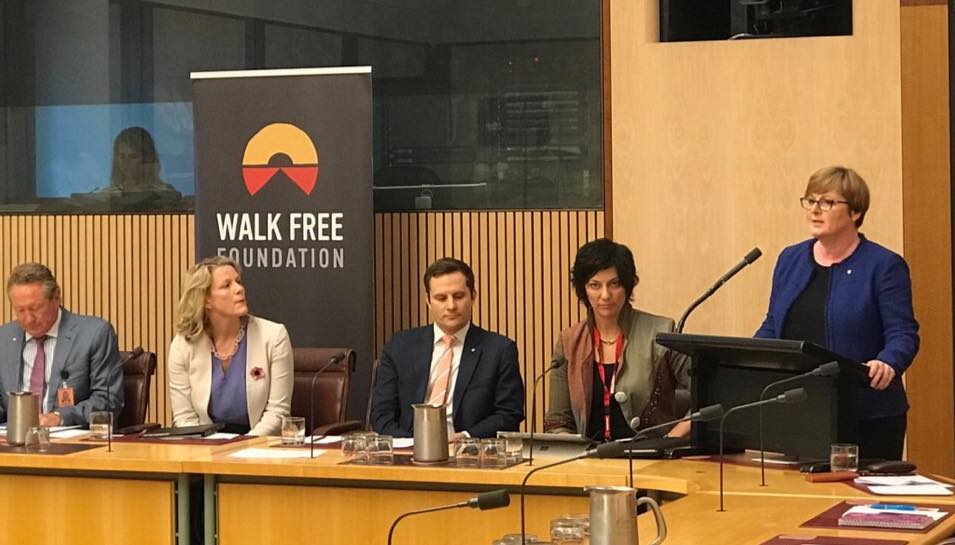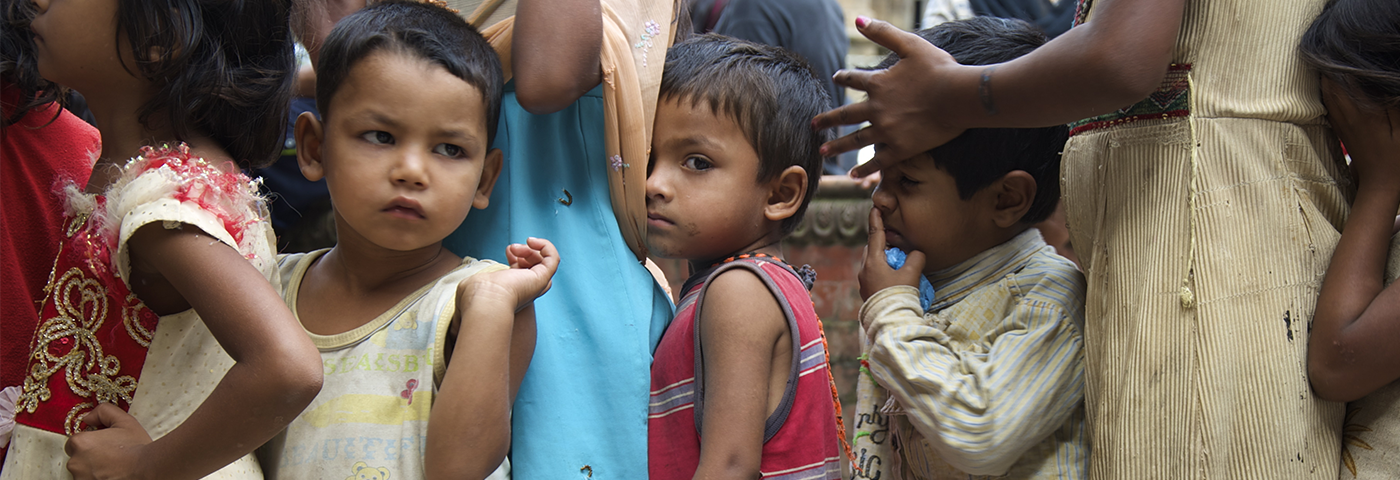There is mounting concern about orphanages and tourism around the world, but the response has been patchy. Our world is a diverse place and our understanding of orphanages varies between different source markets and destinations. Too often we think that it is acceptable, even desirable, for us to do things abroad that we would not be able to do at home, for example assisting in an orphanage. The issue was first raised at WTM, London in 2011 and we have addressed the issue at every WTM since. Find out more.
In November last year, we had panels on trafficking and modern slavery and on the problem of orphanage tourism. J K Rowling established Lumos in 2005 to help the millions of children in orphanages regain their right to a family. Organisations like Next Generation Nepal work to reunite trafficked children with their parents. There is much work to be done, Next Generation Nepal estimates that in Nepal “as of 2017, there are still 15,000 children living in abusive orphanages. 80% of these children are not orphans; they have families.” Reintegration of trafficked children with their families is long-term, painstaking work. “Even after they have been reunified, it can often take years for a child to feel safe. Our team also continues to assess the economic situation of families during field visits to make sure they have enough food and are being given the resources to support their children.” Supporting the work of those seeking to reunite children with their families and support them is the more responsible approach. The US State Department last year recognised the issue.

Lumos states the scale of the challenge boldly “Eight million children live in orphanages and other institutions globally. More than 80% are not orphans but have been separated from their families because of poverty and discrimination. Orphanages harm children, exposing them to all forms of abuse and trafficking.”
Wesley’s story from Haiti: “Sometimes sponsors would bring lots of food. The storage room may have been filled with food – and we were starving. We would see the Director putting the food in a vehicle to go and sell it. ….. It was just like we were merchandise; we were on the market place, and they had to sell us to keep the money coming in. They put a myth in our mind – that we were slaves.”
Mirlande’s story of being an ‘orphan’: “They took all the stuff and sold it. The white people would bring us sandals, and [the orphanage director] would not give them to us – all the kids would walk around barefoot. If something valuable was sent to a kid by their sponsor, she would take it and use it for herself.”
The volunteers’ stories too tell of abuse, neglect and deceit in Haiti: “Hannah Reid’s volunteering stint started with a grotty hostel and ended with the feeling an industry built on best intentions could be doing more harm than good.” Reported in the New Zealand Herald. The campaign continues campaigns against orphanage tourism in developing countries by Save the Children, Unicef, Friends International and an alliance known as ReThink Orphanages. They argue that donations and volunteering resources should go instead towards community-based care and family reunification and support. The campaign has had some successes.
US based Projects Abroad no longer place volunteers in orphanages or any residential childcare institution and are now supporting community-based care for children.
IVHQ based in New Zealand has faced sustained criticism for its placing of volunteers in orphanages. They have now decided to cease placing volunteers in orphanages.
The Australian Senator Linda Reynolds has had success in Australia with her campaign; she posted this on 15th February.
“One of my proudest days in our Parliament with the announcement that anti-modern slavery legislation will be introduced into the Australian Parliament this year and it will recognise the trafficking of children into ‘orphanages’ as slavery. Australia is now leading an unstoppable global momentum to address this insidious crime and reunite over 8 million children with their families and provide support to their families to ensure that poverty is never again a reason to separate families.
Thank to Bill & Melinda Gates Foundation as for me, this started with your support to Save the Children Australia and thanks to J.K. Rowling & Lumos for your global leadership and support for our inquiry. Thanks also ro Chris Crewther MP Simon Birmingham Julie Bishop MP Alex Hawke MP Walk Free Foundation Forget Me Not and so many others!”
The issue of orphanages and trafficked children will be on the agenda of the Commonwealth Heads of Government meeting in London in April. The campaign continues to gather pace and support, yet there is still much to be done. Many faith groups are still uncritically funding orphanages and in India there is now a fashion for holding children’s and even adult birthday parties in orphanages. Two example here and here – yet there are many more. This new fad has sparked debate about whether children in orphanages really enjoy celebrating an unknown person’s birthday.

Trafficking children into orphanages and trapping them there is a form of enslavement, encouraging it or funding it through tourism, by placing volunteers in orphanages, arranging visits or encouraging or facilitating donations is aiding and abetting criminal activity, damaging children. A growing number of people are making the connection with slavery.



Maybe just maybe we are seeing the start of the demise of this exploitation. I for one want to thank WTM and Harold Goodwin for keeping this issue on the agenda – it’s not been easy for them – for years the attendance at seminars addressing wildlife issues outstripped the attendance at child protection sessions by at least 500% – in 2017 we saw that figure drop to about 100%.More and more voices in the travel industry have been added to the call to stop this exploitation. Harold Goodwin and WTM have played a pivotal role in enabling those voices to be heard –
This is a very important topic and I’m so happy to see that WTM is addressing the issue. Children’s Homes unfortunately are needed in this world. In South Africa alone there are 3.000.000 vulnerable children who don’t live in a safe, loving family environment. There might still be a parent but might not be able to look after the child. Social workers must always re-assess the home situation of the children to see if they can return, which is the main aim. No child should spend the rest of their lives in a children’s homes but unfortunately not enough people choose to foster or to adopt a child so the homes are still needed. It is also not wrong to donate to a children’s home to make sure they can upkeep the place. The South African government only pays for the running costs and to make sure the children can go to school but not for any extra costs. Each children’s home in South Africa is therefor dependent on donations to do renovations. However, this should be done in a very responsible way and reporting before and after should happen. We’ve worked with several children’s homes to do renovations through an organization called Newkidz.org.za. They do very important work for all the children in the Western Cape. In South African tourism we should focus MORE on helping vulnerable children. It is very much needed. But clear guidelines and briefings should happen and no contact with children or only under the guidance of South African Social workers.